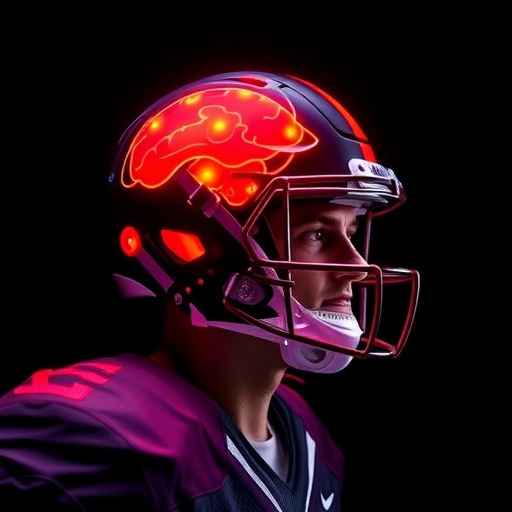Detecting Concussions with Machine Learning: A Portable Solution from the University of Missouri
Concussions remain one of the most challenging injuries to spot accurately, particularly in environments where immediate medical expertise is limited. Traditional methods depend heavily on self-reporting of symptoms such as dizziness or headaches, which are inherently subjective and often unreliable. Addressing this challenge, researchers at the University of Missouri have created an innovative portable system designed to objectively and rapidly assess potential concussions using advanced machine learning techniques.
The new device, known as the Mizzou Point-of-Care Assessment System, offers a compact and affordable alternative to the expensive, lab-bound concussion assessment machines currently available. At its core, this system integrates a force plate, a depth camera, and an interface board, allowing it to measure subtle variations in body motion with remarkable precision. The system’s portability fundamentally broadens access to concussion evaluation beyond specialized medical facilities and into settings like athletic fields, military locations, and emergency response scenarios.
In recent experimental research involving 40 collegiate athletes—half diagnosed with concussions—the system was employed to capture data on movement, balance, and reaction times. Through the use of force plates, the apparatus detected weight distribution and balance stability, while the depth camera meticulously tracked motion patterns in three dimensions. The collected data was then fed into machine learning algorithms capable of discerning differences between healthy subjects and those suffering from concussive trauma.
Machine learning algorithms were trained on discrete physical outcome measures, learning to identify hallmark characteristics indicative of concussion. Individuals with a concussion typically exhibited slower reaction times, reduced walking speeds, and impaired balance, especially during tasks designed to stress vestibular and cognitive functions. Notably, tasks performed with eyes closed or involving backward counting from 100 in sevens intensified the difficulty, allowing the system to detect even subtle deficits in motor control.
The system’s basis in machine learning offers a dynamic advantage: baseline assessments can be recorded when individuals are healthy. This personalized data allows subsequent post-injury evaluations to be compared against individual baselines, vastly improving diagnostic accuracy. According to Trent Guess, associate professor and research lead, “If someone undergoes a head injury, our system can compare their current motor and reaction metrics against their baseline, giving clinicians a clear picture of changes linked to concussion.”
Beyond the technical framework, the multidisciplinary collaboration at the University of Missouri stands out. Engineering expertise melds with clinical insights from orthopedics, physical therapy, sports rehabilitation, and exercise science, fostering a holistic approach to concussion identification and management. This fusion ensures that the system is both biomechanically sound and clinically relevant, with direct applications in everyday medical practice.
The potential implications for sports medicine are profound. Rapid onsite assessment could prevent premature return-to-play decisions, reducing risks of further injury. However, the system’s utility extends to professions such as military personnel and first responders, groups who face higher concussion risks in varied environments. The portability of this technology means that evaluations can happen in the field or in non-clinical settings, aiding in timely medical interventions.
Recovery monitoring is another critical application. The Mizzou system can track improvements in balance and reaction over time, providing data-driven evidence to guide rehabilitation protocols. This continuous monitoring is essential to ensure that individuals are genuinely ready to resume physical activity or return to work, emphasizing safety and reducing long-term neurological consequences.
Currently, only a limited number of these devices exist for research purposes. Nonetheless, the research team envisions mass production in the near future, envisioning widespread deployment across sports arenas, clinics, battlefields, and emergency response units. This scaling would democratize concussion assessment, making it accessible outside specialized institutions and enhancing public health outcomes.
The research study documenting this advancement, titled “A machine learning approach to concussive group classification using discrete outcome measures from a low-cost movement-based assessment system,” was published in Medical Engineering & Physics. The study’s experimental design used objective movement metrics and demonstrates the efficacy of machine learning in enhancing concussion diagnostics.
Engineering challenges in system development centered around balancing accuracy, affordability, and usability. The chosen components—force plates capable of detecting minute shifts in pressure distribution, combined with depth cameras that map spatial body movements—represent an intersection of biomechanics and computer vision. The interface board facilitates seamless data communication between hardware and the analytic software, enabling real-time processing.
Machine learning models—likely leveraging classification algorithms such as support vector machines or random forests—parsed through multivariate datasets composed of reaction times, balance parameters, and gait characteristics. These models identify patterns that elude human observation, underpinning the system’s ability to flag concussion-related impairments objectively and efficiently.
As this technology advances, questions remain about integration into existing medical workflows and acceptance by clinicians and athletic trainers. However, the promise of a portable, affordable, and accurate concussion detection tool could revolutionize how concussions are managed worldwide, reducing risks from misdiagnosis and enhancing outcomes for those affected.
—
Subject of Research: People
Article Title: A machine learning approach to concussive group classification using discrete outcome measures from a low-cost movement-based assessment system
News Publication Date: 24-Jul-2025
Web References: http://dx.doi.org/10.1016/j.medengphy.2025.104402
Image Credits: University of Missouri
Keywords: Health care, Emergency medicine, Patient monitoring, Personalized medicine, Medical products, Medical facilities, Health counseling, Sports rehabilitation, Machine learning, Biomechanics, Concussion detection, Medical engineering




